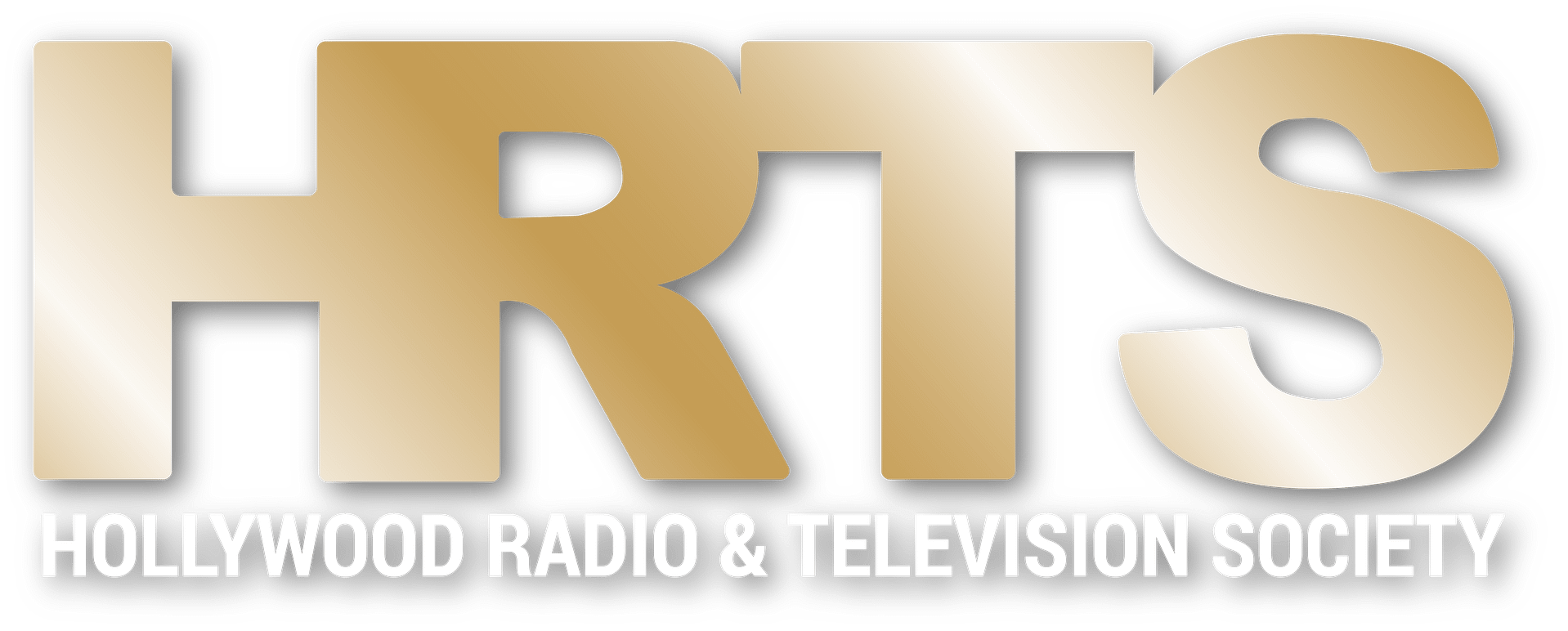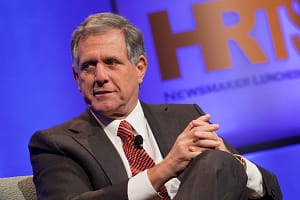On November 17th 2011, the HRTS Newsmaker Luncheon Series hosted Les Moonves, President & CEO of CBS Corporation, who took the stage at the Beverly Hilton for a one-on-one conversation with Brian Lowry, Media Columnist at Variety.
Lowry opened by noting that the last time Moonves had graced an HRTS stage was back in September 2006, when the big story was that Tom Freston had been fired for “having missed out on the tremendous opportunity that was MySpace”. After a round of knowing laughter, Lowry asked “what does that tell you about this business and where we are right now?” Moonves said “the news is always dire for the broadcast networks. I’ve heard since I’ve been in this business that the networks are dying, the networks are dead and technology is going to overwhelm us and frankly that didn’t happen. In every instance, technology has been a friend to the content business”.
Continuing on the theme of technology, Lowry noted that Netflix is getting into original programming and he wondered how that may change the dynamics of the industry. Moonves said “I don’t know what’s going to happen. Look, it’s an odd thing to me to read a pilot and order 44 episodes. That’s something we wouldn’t do. I’ve seen about ten thousand pilots that have everything right about them but you don’t jump before you absolutely have to”. Moonves went on to note that Netflix has hired a very good team but said that he thinks broadcast is still the best game in town.
Lowry noted that “we’ve seen some stories recently saying that the advertising market is shaky” and so he wondered if CBS might be vulnerable. Moonves acknowledged that “of all major media corporations, we are the one that has the highest percentage of our revenue from advertising” and so anytime “the guy in Greece blows his nose, it affects CBS”. Moonves added however that “network advertising remains very strong, network advertising remains a good ballgame”. He further pointed out that 2012 is an election year, saying that “when you watch the rancor and the amount of money that’s going to be spent then the good news for CBS is that we take almost ten percent” of what is expected to be $2.5 billion in spending, adding that “we can’t wait for 2012, it’s gonna be a banner year for us”.
In terms of demographics, Lowry said that “one of the things that CBS has taken a rap on over the years is that you’re an older profile network”, going on to note that now the other networks are also getting older. Asked for his take on this aging-up of the other broadcasters, Moonves quipped “I think they just saw the light, frankly” since “just basing the world on 18 to 49 is an untrue measurement” and, most practically, “a big hit is watched by everybody. AMERICAN IDOL is not only watched by 18-49, it’s watched by 80-year-olds and it’s watched by 15-year-olds, it’s watched by everybody”. Moonves acknowledged that CBS has been seen as the old folks’ network, since “when I first got to CBS, the sexiest woman on the network was Angela Lansbury but fortunately we’re doing a little bit better than that now”.
Is our business becoming more transactional, are there more and more ways for ‘free’ broadcasters to get paid? Moonves said “there’s no question. We use this phrase a lot, we call it the content food chain. The biggest piece of that is still broadcast advertising revenue. Then the second piece is syndication both international and domestic, then you get into the Netflixes of the world, the retrans, etc, etc. These are all good businesses. When you look at a show you look at it holistically now” and “this is a different way than even five years ago”.
With cable ratings continuing to rise, and in some cases approach broadcast ratings, Lowry asked “do you see that there really is still room for a number of broadcasters or is this going to become a niche business?” Moonves said “I still believe in the power of network television”, adding that “I talk to the advertisers all the time, there’s something that we give the audience that can’t be done by cable”.
Following up on the theme of cable v broadcast, Lowry noted that “we’ve seen some grumbling from the broadcast networks over the years about the Emmy Awards that they host turning into a three hour infomercial for cable”. Should there be separate categories for broadcast and cable shows? Moonves said that “I don’t think it’s unfair that some of these cable shows get the awards that they do, they deserve them”. Moonves added that he doesn’t have any gripes and “especially since Showtime is part of the CBS family”.
As to the Charlie Sheen debacle, of which millions of words have been written, debated, discussed and disseminated? Moonves said simply “shit happens”, going on to add that ratings for TWO AND A HALF MEN are up year-over-year and that he expects the new version to last for quite a while.
Les Moonves has been in this business for many years and so Lowry wondered if he still obsesses over the details, asking “do you still find yourself jumping out of bed in the morning during those first couple weeks of the season?” Moonves said that he enjoys it “every day of my life. It’s easier now that they come on the BlackBerry and I don’t have to walk to the FAX machine, that’s the only difference”. He added that “it’s still exciting the first three weeks of the television season. I still get a thrill out of it. I still look at it every day. I look at it on Sunday morning even though I know the Saturday numbers are going to be horrible. I still enjoy it, I enjoy the game, I enjoy the competition”.
There are a lot of procedurals on CBS, Lowry noting that many of their shows “open with a chalk outline” and Moonves owned right up to it, admitting that “we kill a lot of people”. This being the case, Lowry asked “have you resigned yourself that there’s a CBS kind of show?” and Moonves said “no, I think it’s actually an unfair rap. We have a lot of procedurals but…we’ve done pretty well in comedy with our Monday night lineup, it’s been a pretty strong lineup”. In terms of overall programming types and strategy, Moonves said “I think we like to put on what we consider the best shows. Is this a form we run away from? No. The critics like to say ‘it’s another procedural from CBS’ but I’ll take those numbers any day of the week”.
So what comes next? In closing, Lowry asked Moonves to peer into his crystal ball and let everyone know what we should be watching over the next year or two. Moonves said “the biggest challenge is we hope Netflix stays strong and alive. The biggest conflict, the thing that faces all these companies is to continue to have great talent and be smart about how to sell it in all sorts of platforms”. Moonves added that “I think the broadcast model is better now than it was five years ago, because of all these places that take your content. I think the numbers remain very strong, I think you’re seeing very healthy networks and I think it’s going to continue for a long time”.
Photos by Chyna Photography
HRTS and JHRTS members – view the video replay here with your member login.



